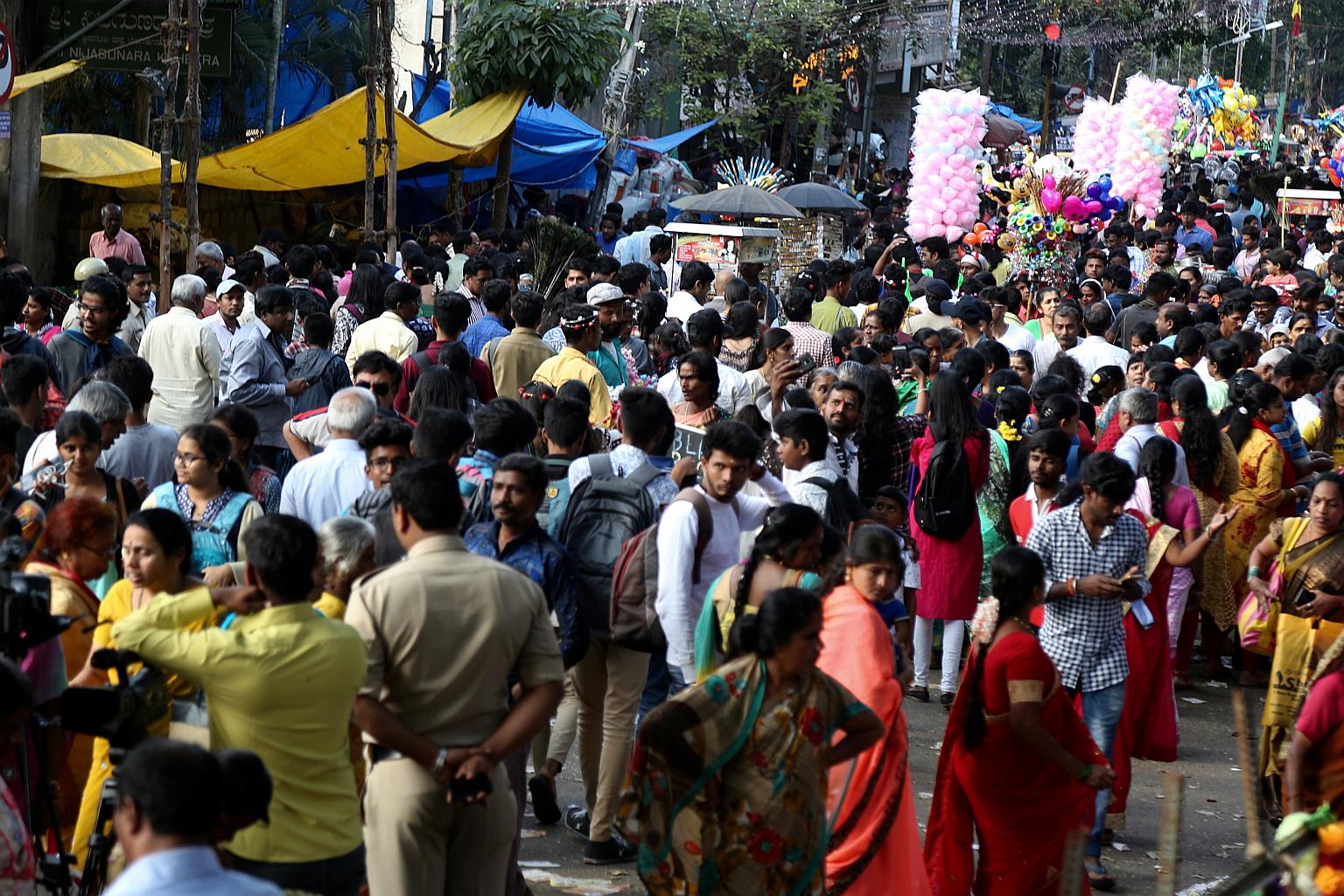Making the world hotter: India's expected air-conditioning explosion
Sign up now: Get insights on Asia's fast-moving developments

With India’s air-conditioner market expected to explode from 30 million to a billion units by 2050, the world’s second-most populous country could become the planet’s top user of electricity for cooling.
PHOTO: EPA-EFE
BEHROR, India (AFP) - Ratan Kumar once battled India's brutal summers with damp bedsheets and midnight baths. Now he is among millions upon millions of Indians using air-conditioning - helping make the world hotter still.
With India's air-conditioning market expected to explode from 30 million to a billion units by 2050, the world's second-most populous country could become the planet's top user of electricity for cooling.
India is already the No. 3 spewer of greenhouse gases, burning through 800 million tonnes of coal every year - and the predicted air-conditioning boom could mean the country would have to triple its electricity production to meet demand, experts say.
But for the hundreds of millions of Indians enduring scorching, even deadly, summers, the air-conditioners are a godsend.
"Summers make our life miserable," said Kumar, a 48-year-old laundryman earning US$225 (S$337) a month who this year installed an air-conditioning unit in his two-room house in the town of Behror in the baking-hot desert state of Rajasthan.
"Sleeping for few hours is a struggle after a day's hard work," the father of two told Agence France-Presse (AFP), running a hot iron over crumpled clothes. "I am not rich but we all aspire to a comfortable life."
Vast swathes of India endure a gruelling four-month-long summer, and the mercury has been inching ever higher in recent years.
In 2016, the Earth's hottest on record, temperatures in the Indian town of Phalodi soared to 51 deg C, the highest recorded in India.
The brutal heat can melt tarmac on the roads and puts millions of people at risk, with nearly 2,500 victims perishing from sunstroke in 2015.
EVERYONE DESERVES AN AIR-CONDITIONER
Currently, just 5 per cent of Indian households are equipped with air-conditioning, compared with 90 per cent in the United States and 60 per cent in China, up from virtually zero 30 years ago.
But India's air-conditioning market is catching up fast, seeing double-digit growth in the past decade as incomes rise and electricity supplies become more reliable.
"It's no longer a luxury product but a necessity," said Mr Kanwal Jeet Jawa, India head of Japanese manufacturer Daikin, whose factory in Rajasthan churns out 1.2 million air-conditioner units a year.
"Air-conditioners increase productivity and life expectancy. Everyone deserves an air-conditioner," he told AFP.
The irony is that as humans try to stay cool, the refrigerants inside air-conditioning units and the generation of electricity needed to power the appliances are exacerbating global warming.
In addition, studies - including by the World Health Organisation and UN-Habitat - show that the heat-generating motors inside air-conditioning units can themselves push up temperatures in urban areas, where the appliances are widely used, by a degree or more.
As demand grows, the amount of energy consumed globally by air-conditioning units could triple by 2050, requiring new electricity capacity equivalent to the combined current capacity of the US, the EU and Japan, the International Energy Agency says.
India currently generates about two-thirds of its electricity with coal and gas, and despite ambitious plans for renewable energy, the country is set to remain highly dependent on hydrocarbons for decades to come.
One possible source of hope is if Indians buy more energy-efficient air-conditioning units, and manufacturers like Daikin are promoting these over older technologies.
But they are pricier, and Indian consumers that have air-conditioners are slow to upgrade, partly due to an ingrained culture of repairing devices rather than buying new ones.
In June, the Indian government issued an "advisory" to air-conditioner makers to keep the default setting at 24 deg C to save billions of units of electricity and reduce emissions.
But for now, the measure is not mandatory, and with many people expressing outrage, it is unclear how effective it will be.
BIGGER WORRIES
As a major international climate change meeting, called COP24, gets under way in Poland this week, Behror electronics store owner Ram Vikas Yadav says his customers have bigger worries than global warming.
"People want air-conditioners to keep their homes cool," Mr Yadav told AFP, adding that his sales have rocketed 150 per cent every year. "This year, I sold 300 air-conditioners."
He said rural families, in particular, attracted by aggressive marketing by manufacturers, are ditching traditional ways to cool their homes.
These include ceiling fans or air coolers - a fan-run device that blows cool air off water-soaked pads, which are often a haven for disease-carrying mosquitoes.
Laundryman Kumar, too, feels the summers have become hotter than usual in recent years, pushing him to invest in air-conditioning.
"Scientists keep on saying such things, but I can at least have some sound sleep now."


